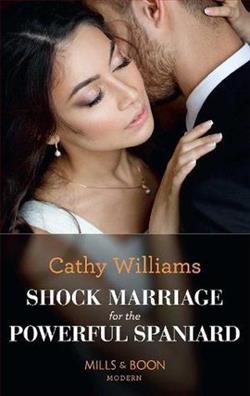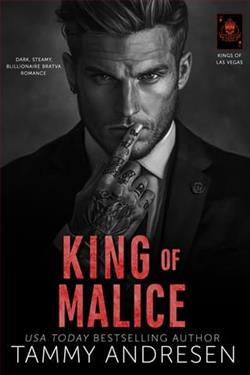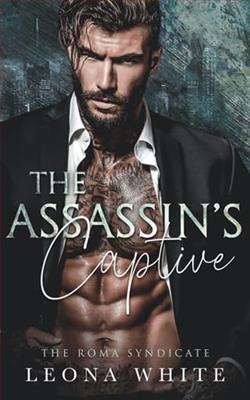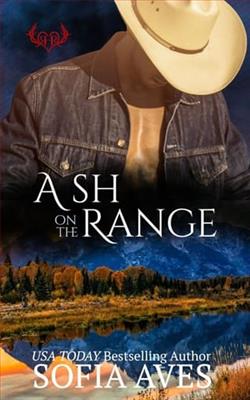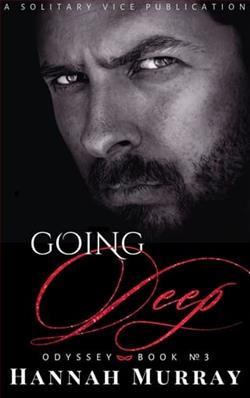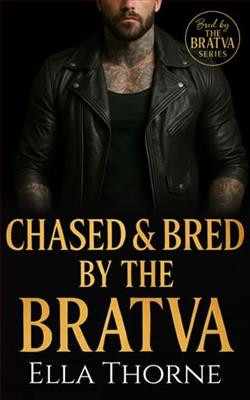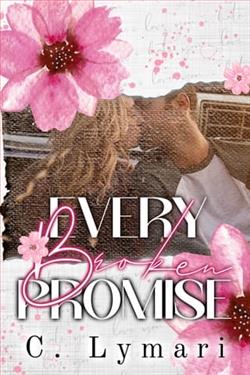Page 39 of The Dragon Ring
“Why would she have wanted that for him?”
Merlin bridled. “She has the second sight. Some say she looked into his future and was afraid.”
I felt sympathy for her. If she’d seen anything approaching what I knew of the legends of King Arthur, I didn’t blame her for having wanted to save her son from the fate that might be lying in wait for him.
Merlin shrugged. “The King refused her. He had other plans for Arthur. They fought. She refused him her bed. He took another woman to his. Things escalated. The King banished her to Tintagel, her first husband’s stronghold. She took her younger daughter with her, but Uthyr wouldn’t let her take her son. She’s been there ever since. Arthur blamed his father for everything.”
“How old was he when this happened?”
“A child only. Seven, maybe eight years old.”
The same age I’d been when I’d lost my mother. I felt a rush of sympathy for him.
Merlin continued. “The rift with his father never healed. All to Cadwy’s advantage. Arthur was a rival not just for their father’s affections but also for his inheritance. There’s no love lost between Arthur and Cadwy.”
“So, Arthur is at Din Cadan because he doesn’t get on with his father?”
Merlin nodded. “Their relationship is…strained. Uthyr sees in him the makings of a great leader. No great leader is ever a great follower. The King’s not stupid. He saw how the land lay between his sons. He gave Arthur Dumnonia and the West to rule, sending him far from court. Cadwy saw it as banishment and was pleased. Arthur too, until he’d been there a while and began to realize his father had given him a little kingdom of his own to rule.”
“And now his father is dying.”
He nodded. “Just so. And a dutiful son returns to the deathbed of his father.”
I began to think I could see what lay behind this headlong ride.
“If his father is High King, and Cadwy is the oldest son, will Cadwy succeed his father? When Uthyr dies, will Cadwy become High King?”
Merlin gave a half shrug. “The role of High King isn’t hereditary. He’s elected by the Council of Kings. Uthyr took the title after his brother Ambrosius died, not by right of birth but by election. It’s doubtful the kings will elect Cadwy in his stead, even if he asks it of them. He’s not popular.”
“But they may elect Arthur?”
“He is not a king.”
I was silent for a few moments. The cold night air pressed in around us, making me shiver.
“Does he need to be?”
Merlin shrugged his shoulders again. “Yes. But there are ways and means for that to be achieved.”
I pulled my cloak tighter about me as a chill breeze tugged at it. Merlin stepped away from me.
“Now, you must sleep. Tomorrow we rise early and must make fifty miles or more before darkness falls.”
He left me standing on the threshold of my room, with more questions than I’d started with, farther from home than I’d ever been.
Chapter Eleven
We rose early,as Merlin had planned. The same timid girl brought bread and olives and a flagon of mead to my bedroom. Then Merlin knocked on my door to escort me down to the stables where one of the men had prepared my horse. Someone, Merlin I suspected, had found a sheepskin and fixed it to my saddle, so I was more comfortable than I’d expected to be.
It was barely light when we clattered out of the courtyard and into the dirty old forum of Caer Baddan, leaving behind Bassus and his wife. I was glad to see the back of the place. The bed had been surprisingly comfortable, and I’d slept well, but there’d been something scurrying about on the floor of my bedroom on tiny feet. A mouse, I hoped, but it could just as well have been a rat. I was glad to be on my horse again, especially with the luxury of the sheepskin.
The eastern horizon began to redden as we rode out through another dilapidated gate onto the northbound Fosse Way. Mist lay pale over the trees and fields in shrouds of silk. Water glimmered between a line of trees that marked the river Avon, and ducks rose to take flight in a shudder of wings. The morning was marred only by the thought that I was getting steadily farther from Glastonbury and whatever small chance I had of returning to my own time. The cold knot in my stomach was a constant reminder.
The land rose steeply as the road climbed into hills that would one day be called the Cotswolds. Small roads, scarcely more than muddy tracks, turned off to left and right, toward woodsmoke rising into the cold air from hidden dwellings. Herds of cattle and flocks of sheep grazed in the distance, and from time to time we saw shaggy horses. Again, we met no one on the road, as though Britain had closed down with the advent of winter. How busy the modern road that followed this route would be in my time, thick with noisy delivery lorries, cars, motorbikes and coaches.
I couldn’t get used to the silence. No engine noise and fumes, no planes overhead leaving their vapor trails across the sky, no power lines buzzing, no crowded trains– nothing but the expanse of semi-wild countryside. Although, it wasn’t as wild as I’d expected. Columns of smoke rose from isolated farmsteads, and clusters of smoke marked hidden villages like the one I’d seen at Glastonbury. I continued to be surprised by how populated Dark Age Britain was. I’d imagined it to consist of great tracts of uninhabited lands still covered in primordial forest.
The Roman road made quite a difference, and we made good time. At mid-morning we stopped to eat a meal of dark bread, cold meat and onions, washed down with cider, warm from having been carried against the hot sides of our horses. I was ravenous by then. The plain food tasted wonderful, and so did the cider, consumed standing up, while my horse grazed at the side of the road.








